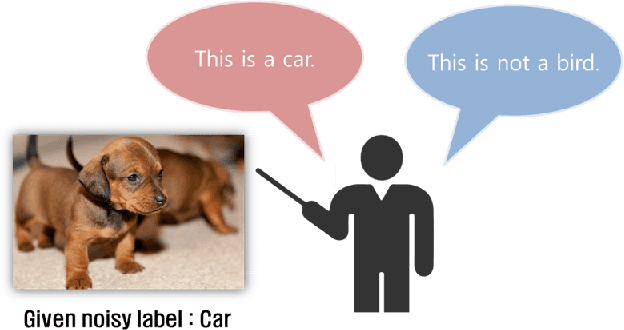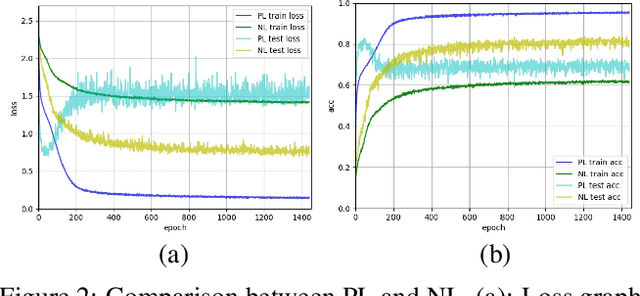NLNL: Negative Learning for Noisy Labels
Paper and Code
Aug 19, 2019



Convolutional Neural Networks (CNNs) provide excellent performance when used for image classification. The classical method of training CNNs is by labeling images in a supervised manner as in "input image belongs to this label" (Positive Learning; PL), which is a fast and accurate method if the labels are assigned correctly to all images. However, if inaccurate labels, or noisy labels, exist, training with PL will provide wrong information, thus severely degrading performance. To address this issue, we start with an indirect learning method called Negative Learning (NL), in which the CNNs are trained using a complementary label as in "input image does not belong to this complementary label." Because the chances of selecting a true label as a complementary label are low, NL decreases the risk of providing incorrect information. Furthermore, to improve convergence, we extend our method by adopting PL selectively, termed as Selective Negative Learning and Positive Learning (SelNLPL). PL is used selectively to train upon expected-to-be-clean data, whose choices become possible as NL progresses, thus resulting in superior performance of filtering out noisy data. With simple semi-supervised training technique, our method achieves state-of-the-art accuracy for noisy data classification, proving the superiority of SelNLPL's noisy data filtering ability.
 Add to Chrome
Add to Chrome Add to Firefox
Add to Firefox Add to Edge
Add to Edge